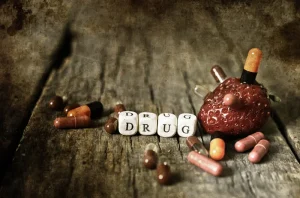
Significant predictors were evaluated by group status and gender to understand the association between coping and EF using Pearson correlation within each group. Executive functioning (EF) and coping styles are important factors likely to influence risk and resilience to relapse following Alcohol Use Disorder (AUD) treatment. This study aims to evaluate EF and coping as independent predictors of relapse and the interplay between these two constructs by treatment outcome group and gender differences.
- This deception can create a cycle of mistrust, as partners may begin to question the veracity of each other’s statements and actions.
- However, it is important to recognize that while alcohol can exacerbate tendencies toward violence, it is not the sole cause of abusive behavior.
- A personal account can be used to get email alerts, save searches, purchase content, and activate subscriptions.
- If you feel like alcohol has been affecting your relationships, consider reaching out for help so that you can be your best self for the people around you.
Alcohol Affects Other Kinds of Relationships
Clearly, this fundamental assumption contradicts the interpersonal nature of IPA, wherein the data from Partner A are, by definition, related to data from Partner B. The authors indicated that negativity expectedly increased from baseline to experimental interactions among husbands assigned to the alcohol condition only. This investigation further revealed a partner effect in that negativity significantly increased only among wives of husbands who had been assigned to the alcohol condition. Couples’ prior history of IPA perpetration did not emerge as a significant main effect and did not moderate any other effects. If you feel like alcohol addiction is affecting your relationship, it’s important to know that help is available. There is a direct correlation between alcohol use in relationships and the quality of intimacy among partners.

Dating an Alcoholic: Navigating the Complex Challenges
- No matter where you are in your recovery journey, our team will be there every step of the way.
- While it’s true that alcohol can increase sexual desire in the short term, it can harm a person’s sex drive in the long run.
- Children are also significantly affected by familial alcohol misuse, with evidence suggesting a correlation between alcohol consumption and aggressive or destructive behavior in children, as reported by the National Institutes of Health.
Keep in mind that someone with alcohol dependence usually goes through a few stages before they are ready to make a change. Until they begin to contemplate quitting, any actions you take to “help” them quit will often be met with resistance. Substance use disorder is a primary, chronic, and progressive disease that sometimes can be fatal. No matter your background or expertise, your loved one will likely need outside help.
- Being able to say no to alcohol when you don’t want to drink, requires a few simple phrases you can say in a pinch.
- Some societies use Oxford Academic personal accounts to provide access to their members.
- If the results indicate any issues, it might be time to ask yourself about the role alcohol plays in your life.
- It’s OK — and, in fact, very normal — if you’re feeling ambivalent about changing your relationship with alcohol, says Ellinwood.
How Alcohol Affects Relationships

Children, in particular, are vulnerable to the negative effects of a family member’s alcohol use. They may experience emotional and behavioral difficulties, such as anxiety, depression, and aggression. The https://ecosoberhouse.com/ interplay between alcohol use motives, coping strategies, and internalizing symptoms such as anxiety and depression is further explored in research published in the journal Drug and Alcohol Dependence.
How Alcoholism Affects The Family
Former children of alcoholics are more likely to misuse alcohol themselves. People who consume alcohol regularly can develop an alcohol use disorder (AUD). AUD is the inability to control one’s drinking despite negative consequences. Although you cannot directly change another person’s behavior, you can control your own attitude and actions. For example, caring but firm boundaries can be difficult but can help you maintain your own mental health. A family history of alcohol use disorder puts a person at greater risk for the disease than the general population.
Impact on Children
They can help determine whether what you’re experiencing is alcohol use disorder and recommend further evaluation or treatment if necessary. Recovery from alcoholism marks the beginning of a journey toward mending strained or broken relationships. It involves a commitment to personal growth and understanding the impact of alcohol addiction on interpersonal dynamics. Trust, once alcohol and relationships eroded, can be painstaking to rebuild, but with consistent and genuine effort, it is possible to renew bonds and foster healthier connections. Interventions such as Alcohol Behavioral Couple Therapy (ABCT), as discussed in a paper from the National Institute on Alcohol Abuse and Alcoholism, have shown efficacy in reducing alcohol consumption and improving relationship dynamics.

Alcohol and domestic violence
- A 2018 study found that alcohol had negative effects on both partners in a relationship for different reasons.
- People in relationships often share homes and short- and long-term goals, engage with one another daily, provide emotional, mental, and financial support, and care for one another.
- This study aims to evaluate EF and coping as independent predictors of relapse and the interplay between these two constructs by treatment outcome group and gender differences.
- If unpacking all of this on your own is causing excess stress or anxiety, consider asking an expert for help.
And even if both parties drink together, they might only feel a sense of connection while the alcohol is involved. This can lead to reduced intimacy and a disconnect in the relationship as a whole. It’s essential to recognize the impact of alcohol abuse on relationships and seek help when needed.
Comments